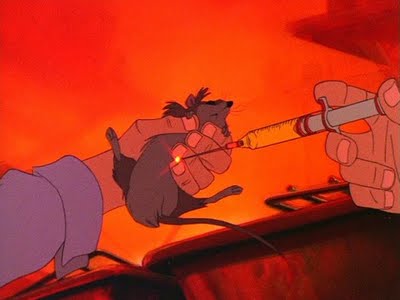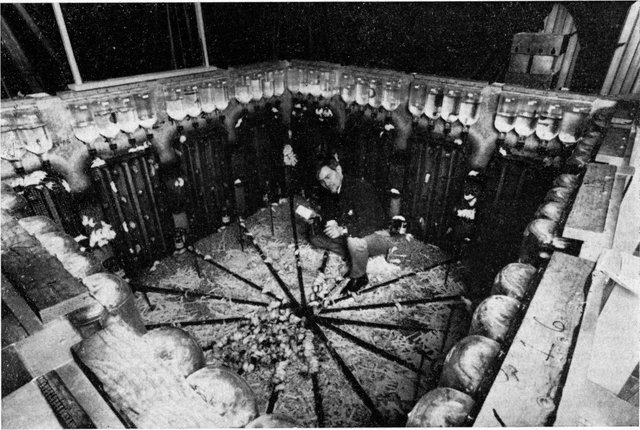The Behavorial Sink: Experiment Made Reality?

One of the biggest questions, I think, in the pursuit of understanding Human behavior, is whether or not all organisms respond in the same way to controlled environmental factors.
The ethologist John B. Calhoun certainly seemed to think so, to the extent that he would risk both his career and reputation to find out.
The Behavioral Sink was was a term coined by Calhoun to describe the psychological effects of overcrowding. Despite the fact that his experiments were conducted with rats, he believed in earnest that the same could be applied to human beings.
The experiment was actually quite simple, and his resourcefulness in this undertaking is certainly worthy of accolade, if nothing else.
During the period of 1958-1962, he set about testing his hypothesis with a few male and female Norway Rats, the population of which would explode over a single year. Later, in the early 70's, he repeated the same experiment, only with mice.
He began by constructing a "rat metropolis" which was designed to resemble a common urban center; close living quarters, coupled with all of the resources -- food, bedding, and water, that a rat would need to survive. It was a utopia in every sense of the word, including the logical fallacy that a utopia could even exist in the first place.

Calhoun pictured with his rat utopia, circa 1970, 681 days after colonization
The metropolis involved a few seperate chambers, and in the beginning the rats were given ample room, at least a few feet for each rat. Being highly social animals, they quickly began breeding, so that that space would shrink very rapidly.
Eventually, as the population climbed into hundreds, the average rat had nary a few inches to themselves, and so began the steady collapse of rat-society. How sad!
The findings were horrifying. In the case of the Norway rats, many of the male subjects were observed becoming extremely aggressive, many of them becoming wholly cannibalistic. This, despite having literally all of their needs met, including a clean living space.
Additionally, Calhoun observed that rates homosexuality skyrocketed among the rats, which may have been what perpetuated the idea that homosexuality is nature's response to overpopulation, however that may be possible.
Amongst the chaos, Calhoun observed a seperate group of rats. These ones are my personal favorites. He called them "the beautiful ones." They were distinctive in that lived solitary, benign lives, involving excessive grooming, and only coming out at night to eat when the others were asleep. They did not suffer the same primacy as the others.
I feel such kinship with these rats, that I can hardly doubt the validity of this experminent!
The obvious conclusion would be that in such close proximity, and with no actual competition for resources, rat-society is a big no-go.

This is me as a rat, in case you were wondering.
I want to know your feelings though.
Can the behavior of small mammals ever be seen as relevant to the human condition, or is Calhoun, among many others in comparitive psychology, a complete lunatic?
Is the behavioral sink an appropriate term for a modern city? I don't know, I just like the sting of the phrase.
Follow me as I continue to explore new ideas I find to be of piquent interest, that I hear about, on the hear-y things, and watch on the watch-y things.
Congratulations @ajaxsmajax! You have completed some achievement on Steemit and have been rewarded with new badge(s) :
Click on any badge to view your own Board of Honnor on SteemitBoard.
For more information about SteemitBoard, click here
If you no longer want to receive notifications, reply to this comment with the word
STOPIf you want to support the SteemitBoard project, your upvote for this notification is welcome!
you're not biased much are you?
what do the facts say?
do they support the hypothesis?
The obvious conclusion would be that in such close proximity, and with no actual competition for resources, rat-society is a big no-go.
it's not obvious to me...'splain it please.
while your at it please explain why you think that calhoun was mentally unstable and why his hypothesis has no relation to humans?
I never said that he was mentally unstable.
It is obvious. The rats declined into cannibalism and violent primacy, despite having all of their immediate needs met.
I happen to think his experiment was very fascinating. I don't necessarily believe it's an accurate reflection of human society, however.
Calhoun, among many others in comparitive psychology, a complete lunatic?
logical fallacy that a utopia could even exist in the first place.
?
It's called the utopia fallacy, or nirvana fallacy.
http://www.claremont.org/crb/article/the-utopian-fallacy/
Also that was obviously a question, indicated by both the phrasing and punctuation.
do you have any data to support your contention?
have you read any history?
do you follow the news?
I was actually just reading the national geographic's timeline of history. I'm mostly into ancient civs.
and?
Congratulations @ajaxsmajax! You received a personal award!
You can view your badges on your Steem Board and compare to others on the Steem Ranking
Do not miss the last post from @steemitboard:
Vote for @Steemitboard as a witness to get one more award and increased upvotes!